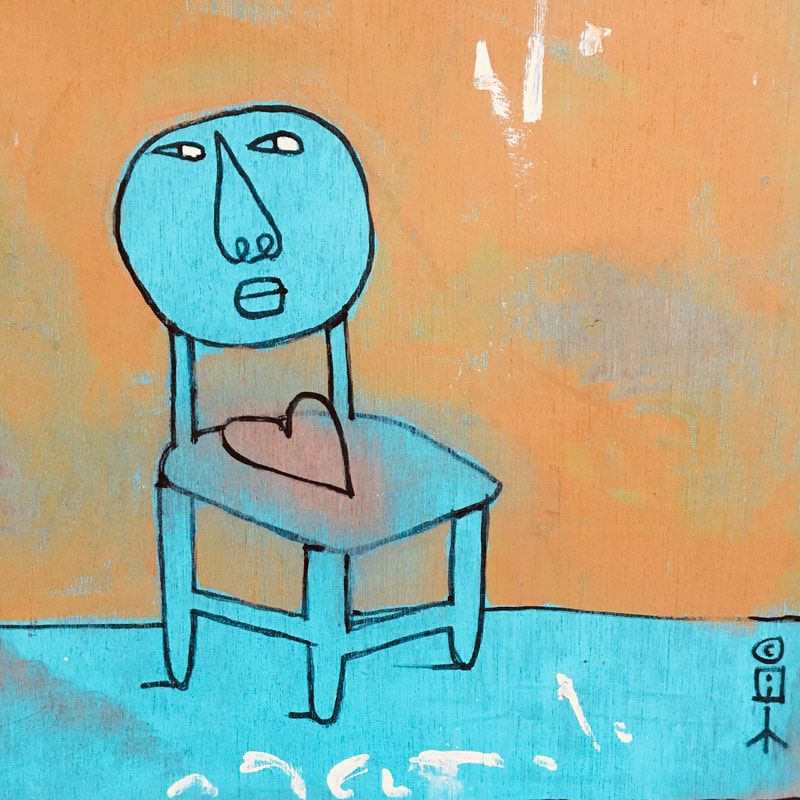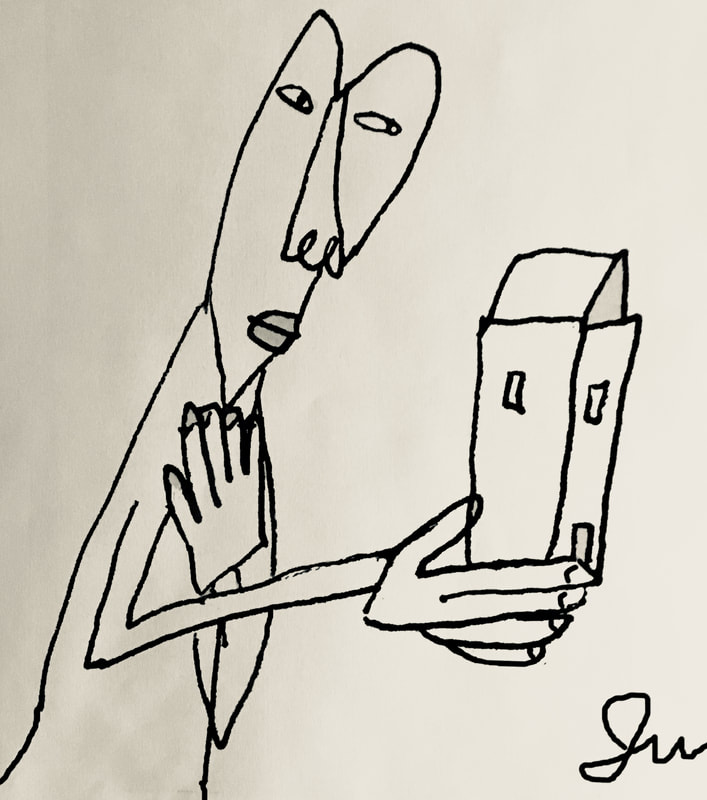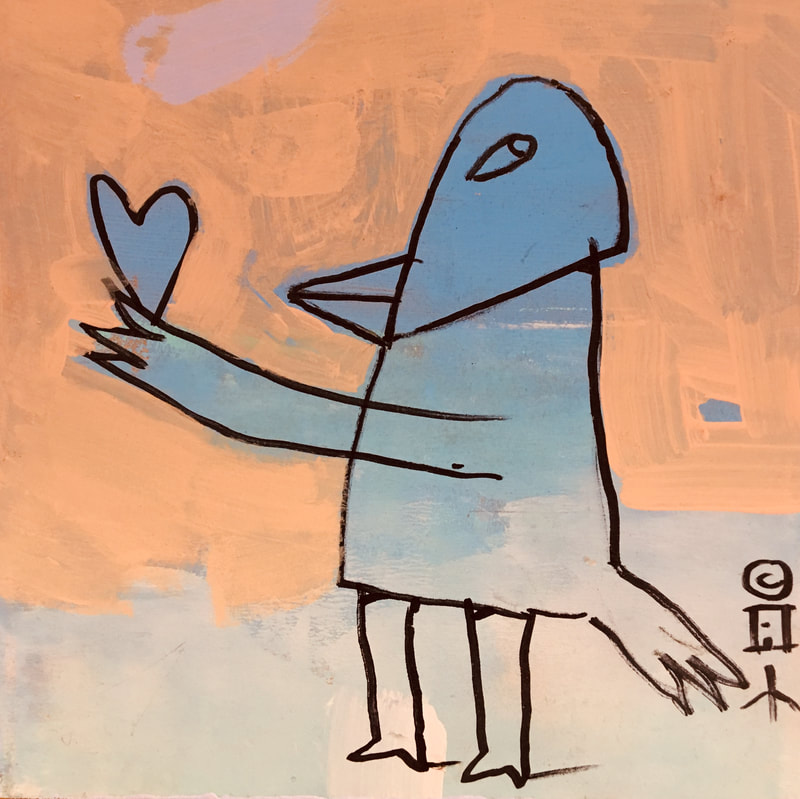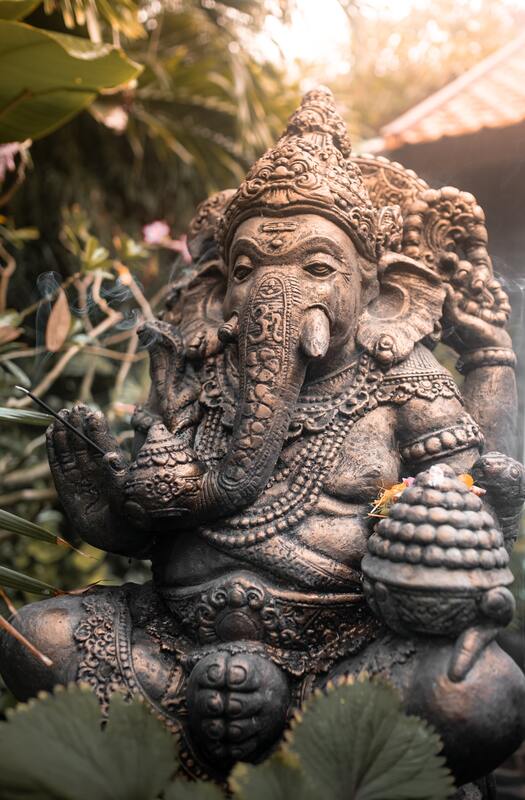|
Heart art from the incomparable (Ithaca local!) ALiCE MuHLBACK. (Alice made my logo!)
get free of 3 painful patterns in relating Attachment, frustration, rejection: 3 simple and super-recognizable relational patterns. It’s so helpful to see how they’re operative—because, simply put, they take us away from love. Note that we all have all three patterns, with one predominant. They work together: you have to be attached to something in order to be frustrated that it’s not in place and then reject what you don’t want. Note, too, that I correlate these 3 styles to Enneagram types at the very bottom of this post! This may seem more heady than my last deeply heart-based Love Overhaul post, but I promise there’s some gorgeous wow-juice in here. I’ve laid it out with simple clarity (not saying you’re slow or thick, oh, NOT-Molasses One; I know your life is full). And this may look long, but it has lots of skimmable bullet points. I’ve illustrated each pattern below with simple “I” sentences. Scan for the phrases that resonate (uh, and maybe feel cringey). I invite you to watch first for your own relational patterns, then later consider how you’ve been on the receiving end of those of others. As you read, remember there’s nothing to judge: this is just what we human beings do. We’re just trying to get our needs met because we don’t trust that’s always happening anyway. We don’t trust that life will show us how. We don’t trust that we’ll be okay if we don’t grab the reins from others (or use more subtle tactics to manage them). So read with compassion and kindness to yourself. Attachment What could I be attached to that would keep me from purer forms of love?
Frustration How do I cultivate or demonstrate frustration, thus staving off the purer forms of love?
Rejection How many ways could I feel or wield rejection to keep myself from purer forms of love?
PAUSE. Allow an integrating breath to go fully in and fully out. You can stop here and just notice and take in the ongoing story of attachment, frustration, and rejection in human (your) relating. Or read on (or come back later) to get more clarity on moving beyond them. Countering these relational patterns I’ll give you a bunch of helpful bullet points, then I’ll give you the big, most important thing, the one thing to focus on if nothing else. (Spoiler alert: It’s about presence. Boils down to NOW.)
About NOW as the key, once again Speaking of this moment, NOW can be understood as the great solution, the foil to the relational patterns, if you’re clear on the difference between relationship and relatedness. I learned this from Jessica Dibb and Russ Hudson, two brilliant teachers of the Enneagram. Relationship is about structures, agreements, and expectations. Relatedness is about active, dynamic, live, in-the-moment relating with another. You’re relating with who they are right now as who you are right now. Once again, now is your best friend. Now contains all you need in every realm of life, and certainly to express, experience, and act upon love. (It occurs to me all human relationships are love-based—even in our professional lives, even in quick exchanges with a cashier: we’re always emitting, receiving, exchanging love.) Actual relatedness requires being present right now to what’s actually happening, what’s being said, what’s being felt. I like to think of my progeny in terms of the current version of them. There have been so many versions over the years, so I get to keep falling in love with who they are now. We can apply this to anyone, and bring it to now: the beloved before you isn’t simply a current version as in this year’s version or this era’s; this is the current version right now, in this very moment. There has been and will be no other moment like it. We support one another’s becoming and our endless potential to transcend false identity by simply allowing one another to be as we are right now and drop in for that. Drop in with curiosity, awe, amazement, the sense of what a privilege it is to witness and partake of this moment, to participate in it fully, to discover someone you love all over again, to discover yourself again in the process. Does it get any better than that? I invite you to the freest love you have access to at any given moment. Breathing consciously into presence, you can witness and shift out of attachment, frustration, and rejection. If you’d like a simple, beautiful love credo (which got more responses than anything I’ve written perhaps ever), see my post Love Overhaul. If you're Enneagram-aware, note that the attachment types are 9, 3, and 6; the frustration types are 1, 4, and 7; the rejection types are 8, 2, and 5. (Still, we all have all three, whatever our core type!) Note that each of the 3 relating triads discussed here has a representative type from each center! (Example: For attachment, 9 is the body type, 3 is the heart type, 6 is the head type.) Baffled by the order I named the types for each of the 3 styles in the first sentence of the prior paragraph? I named them in the order of the 3 centers—body types first (891), then heart (234), then head (567). That's the flow of the Enneagram. Love and blessings, Jaya
0 Comments
Why is it that the very people who really show up for their personal-growth work are also the ones who love to lay trips on themselves about how they should be further along than they are? The more they get a handle on the equanimity thing, the more they believe they should be unflappable. The more they clear their judgments and divest themselves of should, the more they believe they should never judge. They're downright horrified when something really throws them off, especially if any reaction on their part makes them feel mean, judgmental, disconnected, unforgiving, sad, hopeless, despairing — go ahead, name your ugly. The shame they then feel (and doesn't shame feel bad enough?) packs a double wallop because they're ashamed of feeling shame. They've been completely bamboozled by this crazy thing they tell themselves, “I should be beyond this.”
If you have any capacity for questioning your negative, critical, judgmental thoughts about others, then please don't believe the thoughts that would dictate a list of shoulds requiring you to move consistently through whatever life brings in the most serene and blameless way. If you've eavesdropped on your thoughts, you know how your version goes. I'd like to make a case that you shouldn't be beyond anything (except, of course, whatever you're actually beyond, and you may forget what that is because it won't be showing up anymore). And if you're capable of ever laying the I should be beyond this trip on yourself, join me now in considering it carefully so that next time you find yourself there, you may see how to show up differently and actually benefit from the experience. (It really helps to look at what we do while we're not doing it.) It's my belief that life's job is to throw you off and push you to your walls. It will use all manner of creative innovation and maddening redundancy to do this. Listen to yourself go over the evidence (out loud or in your head, again) of all that happened before you lost it. (And then I was going to run back in to get it, even though there wasn't a second to spare, and that's when I learned I'd locked myself out. Of course, this was the moment he had the gall to say. ...) Didn't it take a fascinating sequence of happenings or several things rushing in all at once for you to blow your fuse or let something so important fall through the cracks or go back to feeling depressed or otherwise forget yourself in such a spectacular way? Didn't it involve people or events pushing up against some major button — otherwise stated, something unhealed inside you that's tender and vulnerable and oozing with something ugly that you don't know — haven't yet known — how to clear? Life's job is to clear your unhealed places. It will do this by creating whatever situation or sequence of events you need in order to have it all brought right up to the surface. When this happens, chances are very good that you'll sometimes React. You'll sometimes behave as the worst version of yourself — the one you may have thought your spiritual practices or personal-growth work or even the simple fact of time made obsolete. This is where you might feel horrible about your response and take it as evidence that you're a bad person after all, that you're not worthy of being a parent (friend, lover, spouse, teacher, mentor, therapist, boss, coach — whatever), that you're a complete failure. Here's another possibility: welcome the whole experience. This includes catching (but not believing) the thoughts that judge your behaviors and emotions and tell you you should be beyond this. Please don't confuse welcome as meaning bright smiles and joyful feelings. This is not a Tupperware party or a picnic of any kind. But it could be your liberation. To welcome it, start by simply saying, “I am willing.” If you're not there yet, make it a question: “Are you willing?” Here it is, like it or not. There's not a thing you can undo about this moment or the ones that preceded it and landed you right here. It's good to get to I'm willing in those moments when there's nowhere else to go. And I'm willing can certainly coexist with I hate this and This is not what I wanted. Still, it acknowledges, Here I am. (Here's a quick illustration in case you need one: If you're walking in the snowy cold and you're not home yet and there's no one stopping to offer a ride, what good does it do to tell yourself the lie that you're not willing? Of course you're willing: here you are, walking in the snow. I am willing puts you back in alignment with reality, it's honest, and it reconnects you to choice — because it certainly is an option to choose that moment to lie down and die.) Why should you be willing? Because when life pushes you to your walls, those are the moments you get to move closer to the very thing you most want for yourself, speaking on the soul level. It's interesting and maybe ironic that those are also the moments when you feel farthest away from that, and the times you potentially like and believe in yourself the least and see a bunch of evidence accruing all at once for the likelihood you'll never get there. But will you take in this radical thought? This very scenario, all of your reactions and self-judgments included, is precisely the thing to get you where you want to be. What is it that you most want? Maybe you want to be and live love. How can you do that unless you're willing to show up and love yourself when you feel hideously ugly after you've screamed and yelled at your kids or your lover? Maybe you want to stand consistently in your power. How can you do that if you don't encounter the person or circumstance that makes you wilt and clam up and fail to draw an important boundary? Maybe you want to be and live peace and practice tolerance and forgiveness. How can you do that if you can't pardon your murderous self on death row? Do you want to be self-sufficient? Then don't you need to face the thing that makes you abandon yourself? Then there are those who actually want to reach enlightenment. Wow. Well, if that's you, if there's even one thing left that could make you drop that intention in favor of attacking someone else or yourself, don't you need to bump up against that thing? Wouldn't you welcome it? Are you willing? Whatever you're trying to get to in this life, all of life will help you get there. It's a blessed fact that this sometimes looks like loving faces beaming at you, things falling into your lap, helpers showing up right when you need them — that's the good stuff. And it's just as true (and truly, just as good) that it sometimes looks like you weeping on the hard stairs or putting a hole through the wall or speaking hate to the one you most love. Sometimes it looks like you all wrapped up in the cloak of shame with no idea how to peel the thing off, and suspecting you deserve it as a permanent outfit. Maybe you could find some nice scarlet letter to embroider on for a nice splash of color. ... So when you lose it or behave badly or get hopelessly confused; when you go back to whatever version of angry, jealous, mean, vindictive, clueless, or spineless that you thought was way behind you; when you react in any way that feels mean, judgmental, disconnected, unforgiving, sad, hopeless, despairing—go ahead, name your ugly—can you make space for that, too, instead of then turning all of that on yourself? What if this too is admissible as part of the growth process you know you're showing up for? What if your essential beauty is still intact? And what if exactly what's happening, including the worst of what you feel about yourself in the moment, is your one-way ticket home? love & blessings, Jaya |
Categories
All
|






 RSS Feed
RSS Feed